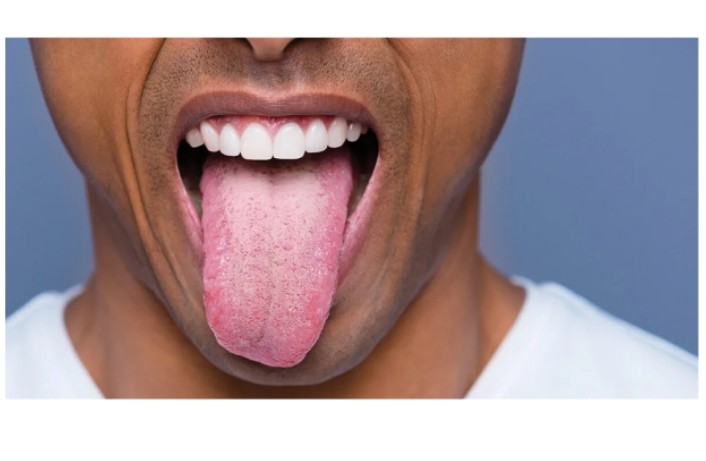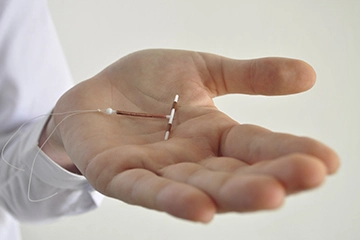What Causes Tongue Biting and How Do You Fix It?

For most of us, that sharp pain we get with an accidental tongue bite comes hand-in-hand with inappropriate words and “ow”s.
The discomfort from these occasional bites is typically short-lived, even if they come with a little bleeding. However, when those nips happen frequently, they move from annoying to chronically painful.
What causes some people to bite their tongues regularly while others only get a random nibble? Let’s dig into that “biting” question and how you can prevent this problem here!
Contents
When Tongue Biting is Normal
Before you get overly concerned about the slice of tissue you just took off, you should know that biting your tongue is a normal part of life. It happens to us more commonly as children, but it never goes away completely.
We tend to bite our tongues when we’re eating while distracted, when we sleep, or during a contact sport or an accident. It’s also a side effect of seizures and dental anesthesia. If we’re overly stressed, tongue biting can be the outlet we use to get rid of some of those stress hormones.
If those are the times you catch yourself biting your tongue, and the bleeding stops within a few minutes, the injury should go away within a week. These bites are irritating and painful, but they aren’t serious.
On the other hand, if you’ve bitten through your tongue, you may need to head to urgent care for stitches and some pain meds. These bites take weeks or longer to heal completely. Still, accidents happen, and your tongue bite is nothing to worry about outside of getting medical attention.
So when should you be concerned? We’ll go over that next.
Ongoing Tongue Biting Causes
Chronic tongue biting is more than annoying. It could be dangerous to your health.
This behavior is caused by various factors, but they all have the same effect. When you bite your tongue frequently, you’re at greater risk of developing infections, ulcers, or “scalloping” — indentations in the side of the tongue. Scalloping isn’t harmful itself, but it can lead to other, more serious conditions.
If you’re biting your teeth in your sleep, it’s likely due to bruxism. Bruxers grind their teeth and clench their jaw, but tongue-biting is common, too. Wearing a night guard won’t stop the movements, but it is an effective way to keep your tongue safe from your sharp, strong teeth. (This article by JS Dental Lab gives more information about sleep tongue biting and how to fix it.)
Those who bite their tongues in their sleep may be having a facial muscle spasm that causes their chin to tremble. This condition, called faciomandibular myoclonus, is most common in children but can happen in adults, too.
Another reason for tongue biting is illicit drug use, specifically using MDMA (molly or ecstasy). This drug causes the user to experience extreme highs and has a known side effect of bruxing and tongue biting.
Finally, certain neurological disorders, including Tourette’s, seizures, and Lyme disease, and sleep disorders like obstructive sleep apnea, can cause you to bite your tongue regularly. If you haven’t been diagnosed with a condition that would cause this behavior and none of the above tongue-biting causes sound applicable, talk to your healthcare provider.
Fixing Tongue Biting Behaviors
In general, a tongue injury will heal quickly on its own. When you are continually biting the tissue, though, you want to figure out what’s causing it so you can stop it from happening again.
The treatment for tongue-biting depends on the reason you’re doing it to begin with. If the cause is a medical condition, your doctor or dentist will work with you to create a treatment plan that’s right for your needs.
If you don’t think you need medical attention yet, though, try these at-home methods for less severe biting:
- Wear a custom-made night guard when you sleep or while you’re awake and doing non-eating activities in which you normally catch yourself biting.
- Add stress-prevention activities to your day. Learn how to meditate, practice deep breathing techniques, or take a yoga class. When you’re not as stressed, your biting symptoms should decrease.
- Just say no to illicit drugs. These chemicals are dangerous to your health and could be the culprit of your tongue biting.
Pay attention to what you’re doing when you bite your tongue. Keep a record of those activities, where you’re at, and who you’re with. You may be able to figure out what triggers the unwanted behavior and prevent it in the future.
Conclusion
Tongue biting is an occasional action we all experience at some point. Yet, when it happens frequently, it’s vital that you figure out what’s causing the behavior so you can stop it before it leads to harmful effects.
These are the most common reasons we bite our tongues and simple solutions. However, if your biting continues, talk to your doctor to find out if there’s an underlying reason.





